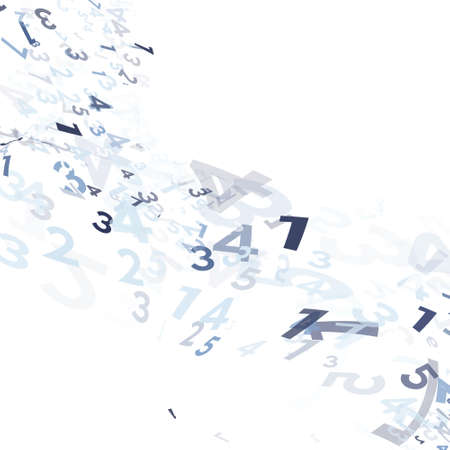Understanding Numerology: An Overview
Numerology, often described as the mystical study of numbers and their influence on human life, has intrigued people across cultures for centuries. At its core, numerology seeks to uncover the hidden meanings and energetic vibrations associated with numbers, providing insights into personality, destiny, and life events. The origins of numerology can be traced back to ancient civilisations such as Egypt and Babylon, but it was through the Chaldean and Pythagorean systems that this esoteric practice gained formal structure. In the United Kingdom, while numerology may once have been regarded as a fringe interest, it has experienced a noticeable resurgence in recent years. This renewed curiosity is fuelled by a broader societal shift towards holistic well-being, self-discovery, and alternative spirituality. British culture today increasingly embraces diverse approaches to understanding personal identity and purpose, making numerology an appealing tool for those seeking meaning beyond conventional frameworks. As we explore both Chaldean and Pythagorean numerological traditions within the UK context, it becomes clear that this ancient art continues to evolve—adapting itself to modern sensibilities while retaining its timeless allure.
2. The Chaldean System: Origins and Methodology
The Chaldean numerology system stands as one of the oldest forms of numerological practice, with its roots traced back to ancient Mesopotamia, particularly within the region that is now modern-day Iraq. This ancient tradition, believed to have been developed by the Chaldeans—a priestly caste renowned for their expertise in astrology and mystical sciences—relies on an intricate method of interpreting names and numbers, which continues to intrigue practitioners across the UK.
Ancient Roots of Chaldean Numerology
Unlike more widely known systems, such as Pythagorean numerology, the Chaldean approach places a strong emphasis on the vibrational qualities of sound and energy. It is founded on the belief that every letter carries a unique vibration and corresponding number, and these vibrations collectively influence an individual’s destiny. The Chaldeans integrated numerology with their broader spiritual beliefs, viewing it as a tool for understanding both personal characteristics and cosmic patterns.
Unique Calculation Techniques
A key distinction of the Chaldean system lies in its use of numbers 1 to 8 (excluding 9, which was considered sacred and not assigned to any letter), as opposed to the Pythagorean system’s use of numbers 1 to 9. Each letter in a name is converted into a single-digit number according to a specific chart. The total sum is then analysed to reveal insights about a person’s life path, personality traits, and future potential.
Chaldean Letter-to-Number Chart
| Number | Letters Assigned |
|---|---|
| 1 | A, I, J, Q, Y |
| 2 | B, K, R |
| 3 | C, G, L, S |
| 4 | D, M, T |
| 5 | E, H, N, X |
| 6 | U, V, W |
| 7 | O, Z |
| 8 | F, P |
Application within the UK Context
The growing interest in holistic practices throughout the UK has led many individuals to explore Chaldean numerology as part of their personal development or spiritual journey. Its unique methodology appeals to those seeking deeper meaning in names—whether it be for choosing baby names or evaluating business titles—and aligns well with the British appreciation for history and tradition. In summary, the Chaldean system provides a fascinating blend of ancient wisdom and practical application for modern life in the UK.

3. The Pythagorean System: Principles and Practices
The Pythagorean system of numerology, often referred to as Western numerology, finds its roots in ancient Greece and is widely recognised across the UK today. Named after the mathematician and philosopher Pythagoras, this method operates on the premise that numbers are the fundamental building blocks of the universe, each carrying its own unique vibration and significance.
Foundational Principles of Pythagorean Numerology
At the heart of the Pythagorean system lies a straightforward process: assigning numerical values to the letters of the alphabet. In this approach, the numbers 1 to 9 are cyclically allocated to the 26 letters of the English alphabet. For instance, A corresponds to 1, B to 2, continuing through I as 9, before restarting with J as 1. This accessibility is one reason why Pythagorean numerology resonates so well in English-speaking countries like the UK.
Core Numbers and Their Meanings
Through simple calculations using an individual’s full birth name and date of birth, key numbers—such as the Life Path Number and Destiny Number—are derived. Each number from 1 to 9 carries a set of characteristics. For example, a Life Path Number 7 might be associated with introspection and analytical skills, qualities often appreciated in British culture’s emphasis on self-awareness and intellectual pursuit.
Methods of Interpretation
Pythagorean numerologists typically analyse core numbers alongside secondary numbers for greater depth. Interpretations may involve exploring how these numbers interact within a person’s chart or applying them to specific life areas, such as career or relationships. In practice across the UK, it is not uncommon for individuals to consult numerologists for guidance on naming businesses, choosing auspicious dates, or gaining personal insight—reflecting both tradition and contemporary curiosity.
Ultimately, Pythagorean numerology offers a logical framework for those in the UK seeking meaning through numbers, blending ancient wisdom with modern application in daily life.
4. Numerology in the UK: Cultural Perspectives
Numerology, while often associated with ancient civilisations and esoteric traditions, has woven itself into the fabric of modern British society in subtle yet significant ways. Its perception and practice within the UK are shaped by a blend of historical influences, local beliefs, and contemporary trends. This section systematically explores how numerology interacts with British culture, examining both its overt and nuanced roles.
Historical Context and Modern Resonance
The roots of numerology in Britain can be traced back to the influence of mystical societies and the popularisation of occult sciences during the Victorian era. Both Chaldean and Pythagorean systems have found proponents among British spiritualists, with the latter gaining particular traction through educational circles keen on classical Greek philosophy. Today, numerology is often encountered alongside astrology, tarot, and other holistic practices, especially within urban centres such as London, Manchester, and Edinburgh.
Public Perception and Everyday Practice
While not universally accepted or mainstream, numerology maintains a visible presence in British culture. It is commonly perceived as a harmless curiosity by some, a meaningful spiritual tool by others, and mere superstition by sceptics. The table below summarises key aspects of numerologys reception in various segments of British society:
Social Group |
Perception of Numerology |
Common Practices |
|---|---|---|
| Youth & Young Adults | Trendy, exploratory, tied to identity formation | Online numerology calculators, social media sharing |
| Spiritual Seekers | Valuable personal insight tool | Name analysis, life path readings, workshops |
| Sceptical Public | Pseudoscience or entertainment | Casual references (e.g., lucky numbers) |
| Elder Generations | Linked to old superstitions or family traditions | Date selection for events (weddings, moving house) |
Influence on Local Beliefs and Traditions
Numerological ideas subtly influence various customs across Britain. For example, certain numbers are traditionally considered luckier than others—seven being widely regarded as auspicious. In some regions, people consult numerologists before major life events such as choosing wedding dates or house numbers. Additionally, numerology features in local folklore and is referenced in literature and popular media.
Integration with Contemporary Spirituality
The rise of holistic wellness movements in the UK has created new spaces for numerology’s practice. Wellness festivals, mindfulness workshops, and alternative therapy clinics frequently offer numerology sessions alongside other spiritual modalities. This integration demonstrates a broader trend towards eclectic spirituality within British society.
5. Practical Applications: Numerology in Everyday Life
Numerology has woven its way into the fabric of daily life for many individuals across the UK, blending both ancient wisdom and contemporary curiosity. While some may view numerology as merely a mystical or esoteric pursuit, countless Britons have found practical value in applying its principles to enhance self-understanding and inform decision-making. This section examines how numerological insights—particularly those derived from the Chaldean and Pythagorean systems—are utilised in real-world contexts, with a focus on name analysis and significant life choices.
Incorporating Numerology into Personal Identity
One of the most common ways people in the UK engage with numerology is through the analysis of names. Both the Chaldean and Pythagorean systems assign numerical values to letters, allowing individuals to decode the hidden vibrations within their given names and surnames. Many turn to this practice when considering name changes, whether due to marriage, professional branding, or personal reinvention. For example, parents might consult numerological experts before naming their children, hoping to endow them with harmonious energies that support success and happiness. Similarly, entrepreneurs often analyse business names to attract prosperity and positive recognition.
Guidance for Major Life Decisions
Beyond names, numerology is frequently consulted during pivotal moments such as career transitions, home moves, or even selecting auspicious dates for weddings and other milestones. In these instances, individuals may calculate their personal year number—derived from their date of birth—to determine if timing aligns favourably with their ambitions. For instance, someone entering a “number 1” personal year might be encouraged to embark on new ventures, while a “number 9” year could signal a period of completion or letting go.
The British Perspective on Numerological Practices
While scepticism remains prevalent in British society, there is an increasing openness to integrating alternative approaches like numerology alongside traditional logic. This pragmatic yet inquisitive attitude allows many in the UK to appreciate numerology as both a tool for reflection and a source of comfort during uncertainty. Whether used privately or shared within close circles, numerological insights are valued not only for their predictive qualities but also for fostering mindfulness about one’s choices and potential paths forward.
In sum, numerology’s practical applications resonate with those seeking personalised guidance amidst life’s complexities. By merging historical systems with modern sensibilities, people across Britain continue to find meaning—and sometimes even direction—through the numbers that shape their lives.
6. Comparing Chaldean and Pythagorean Systems
When considering numerology in the UK, it is essential to understand the distinctions between the Chaldean and Pythagorean systems. Both methods offer unique insights into personal characteristics and life patterns, yet they differ significantly in their approach, historical context, and practical application.
Chaldean System: Depth and Nuance
The Chaldean system is often lauded for its depth and subtlety. It assigns values to letters based on sound vibrations rather than strict sequence, reflecting a mystical tradition rooted in ancient Babylon. This method is particularly suited to those seeking a nuanced analysis of hidden traits or subconscious motivations. Its strengths lie in uncovering deeper layers of meaning that may resonate with individuals interested in the spiritual or esoteric aspects of numerology. However, its complexity can be a limitation for beginners or those looking for straightforward interpretations.
Pythagorean System: Simplicity and Accessibility
In contrast, the Pythagorean system employs a simple numeric assignment from 1 to 9 across the alphabet, making it highly accessible and widely used in Western cultures, including the UK. Its clarity and systematic approach allow for easier calculation and interpretation, which appeals to those who prefer logical structures or are new to numerology. The Pythagorean method excels in providing clear guidance related to personality analysis and everyday decision-making. Nevertheless, some critics argue that it lacks the depth found in the Chaldean tradition, potentially overlooking subtler influences.
Strengths and Limitations
- Chaldean: Offers rich symbolism and insight; best for those interested in hidden meanings but can be challenging due to its irregular structure.
- Pythagorean: User-friendly and systematic; ideal for general guidance but sometimes considered less profound by traditionalists.
Suitability for Different Contexts
For individuals in the UK exploring numerology as part of personal development or spiritual practice, the choice between systems often depends on their goals. Those seeking practical advice or an introduction to numerology may gravitate towards the Pythagorean method due to its accessibility. Conversely, individuals drawn to historical traditions or deeper metaphysical exploration might prefer the Chaldean approach.
Ultimately, both systems have their place within British numerological circles. By understanding their respective strengths and limitations, practitioners can select the most appropriate tool for their unique context—whether it be self-discovery, compatibility analysis, or spiritual insight.


